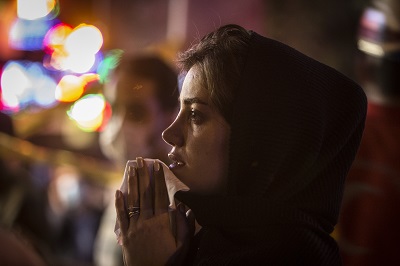Tehran, (Samajweekly) Iranian state media has reported that the country’s morality police resumed patrols to ensure women obey dress codes and cover their hair in public, some 10 months after nationwide protests erupted following the death of a young woman in custody.
Saeid Montazeralmahdi, spokesman for Faraja — Iran’s enforcement body — said the morality police restarted their vehicle and foot patrols across the country from Sunday, CNN reported citing the state-run Fars news agency
Officers will first warn women who are not complying, while those who “insist on breaking the norms”, may face legal action, the spokesman added.
In September 2022, 22-year-old Mahsa Amini died three days after being arrested by the morality police for wearing her hijab, or headscarf, incorrectly and taken to a “re-education” centre.
Although the patrols were paused following the massive national protests that erupted in response to here death, Islamic hardliners have been demanding the resumption, reports the BBC.
Under Iranian law, women must cover their hair with a hijab (headscarf) and wear long, loose-fitting clothing to disguise their figures.
The morality police unit is tasked with ensuring those rules are respected, and detaining people who are perceived to be “improperly” dressed.
They run detention centres where women — and sometimes men — are taken into custody for failing to comply with the state’s rules on modesty, CNN reported.
Inside the facilities, detainees are given classes about Islam and the importance of the hijab, and are forced to sign a pledge to abide by the state’s clothing regulations before they are released.
In the months of violent anti-government protests Iran, nearly 600 protesters were killed, including several state executions.
Many women had stopped wearing hijabs altogether in what was the biggest outright challenge to the rule of the clerics in Iran since the 1979 revolution.
Iran executed at least 582 people last year, a 75 per cent increase on 2021, according to human rights groups.










